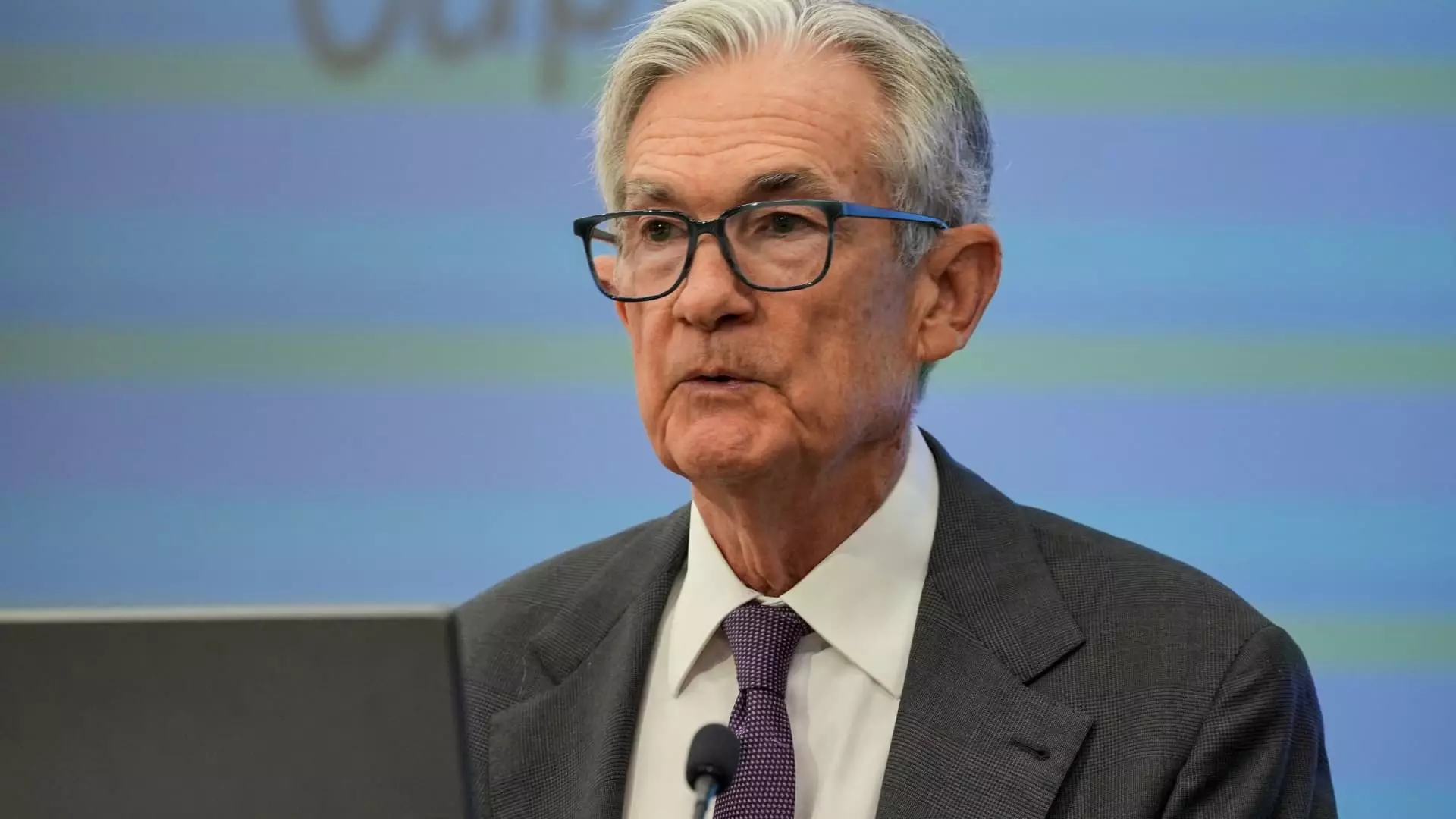In a landscape marred by political turbulence and mounting public skepticism, the Federal Reserve finds itself at a crossroads where its autonomy is more vulnerable than ever. As Jerome Powell prepares to deliver what might be his final keynote address at Jackson Hole, the gravity of the moment cannot be understated. This speech embodies not just an economic outlook but serves as a symbolic battleground where the delicate balance between monetary independence and political interference is fiercely contested.
For decades, the Fed prided itself on its insulating role, shielding monetary policy from the fray of partisan politics. Yet, recent years have severely challenged that reputation. The Trump administration’s persistent pressure, both overt and covert, has sought to manipulate or undermine the institution’s decisions, revealing glaring vulnerabilities. Trump’s public calls for rate cuts, criticisms of leadership, and even attempts to influence administrative decisions have cast a pall over the Fed’s perceived neutrality. These actions threaten to erode the very pillars of central bank independence that are fundamental to a resilient and credible monetary system.
Powell’s navigation through this treacherous political environment has been a testament to his diplomatic tact. Despite relentless attacks, he has maintained a composed front—often cloaked in a veneer of calm professionalism, carefully avoiding direct confrontations while subtly defending the central bank’s autonomy. Critics might argue that this approach, while strategic, risks allowing political pressures to seep into policy decisions, diluting the Fed’s ability to act solely in the interest of long-term economic stability. It’s a precarious line, and Powell’s cautious rhetoric underscores the underlying fragility of this independence.
Political Shadows Loom Over Policy and Economic Stability
The recent barrage of criticisms from the Trump administration, especially targeting specific officials like Fed Governor Lisa Cook, underscores a broader campaign to influence or undermine the Fed’s authority. Such political distractions can have damaging implications for market confidence and the overall credibility of monetary policy. When central bank leaders are attacked or scrutinized for decisions rooted in economic data, the very foundation of objective policymaking is threatened.
Powell’s upcoming speech may serve as a subtle yet powerful assertion of the Fed’s independence. Statements emphasizing data-driven decisions and a non-partisan approach are likely to be delivered, signaling that the central bank remains committed to its dual mandate of maximum employment and stable prices. However, the underlying message is more complex: amidst relentless political noise, the Fed needs to reaffirm that its policy trajectory remains rooted in economic realities rather than partisan agendas.
On the policy front, market expectations are finely tuned to Powell’s tone regarding potential interest rate adjustments. Despite recent signs of a cooling labor market, there’s a growing debate about the necessity of rate cuts—even as some regional Fed presidents worry about overstimulating the economy or fueling inflation. Powell’s cautious stance on committing to a September rate cut reveals a reluctance to be swayed by short-term political or market pressures, highlighting an essential tension within the institution.
Furthermore, the inflation framework restructuring that the Fed adopted in 2020 during turbulent times appears to be under the microscope again. Originally designed to allow more flexible responses to inflation, especially during periods of high unemployment, it now faces calls for re-evaluation and rollback. The question remains whether the Fed’s recalibration can withstand not just economic shifts but also the politicization that threatens to distort its core objectives.
Challenges of Framing Policy in a Partisan Climate
The broader challenge Powell faces is crafting a narrative that upholds the Fed’s credibility while navigating the volatile political environment. Although he is expected to refrain from overt criticism of the current administration, any comments that subtly reinforce the importance of independence and data reliance will resonate strongly within financial markets and among policy thinkers.
More critically, the speech offers an opportunity to address the tension created by the 2020 inflation targeting framework. By hinting at a return to preemptive policies aimed at moderating inflation, Powell can attempt to reestablish a sense of predictability and decisiveness—qualities that the market desperately seeks amid economic uncertainties. Yet, this effort risks fueling political backlash if perceived as a move toward greater monetary tightening or if seen as a rejection of the more flexible approach adopted during crises.
In this era of relentless scrutiny, the challenge lies in striking a narrative balance—fostering confidence in the Fed’s independence without alienating political figures eager to influence monetary policy. Powell’s handling of this delicate task will not only define his legacy but could also set a precedent for how central banks operate in increasingly polarized political environments.
As Powell prepares for his final Jackson Hole address, the question is whether the Fed can withstand the political pressures confronting it and maintain its ability to act as an independent arbiter of monetary stability. The institution’s future credibility hinges on whether it can reassert control over its policy framework and resist the siren song of political expediency. This moment is more than just a routine speech; it is a defining juncture that could either fortify the central bank’s role as a pillar of economic integrity or diminish it to a pawn in partisan power struggles. The stakes have never been higher for the integrity of monetary policy and the health of the broader economy.

